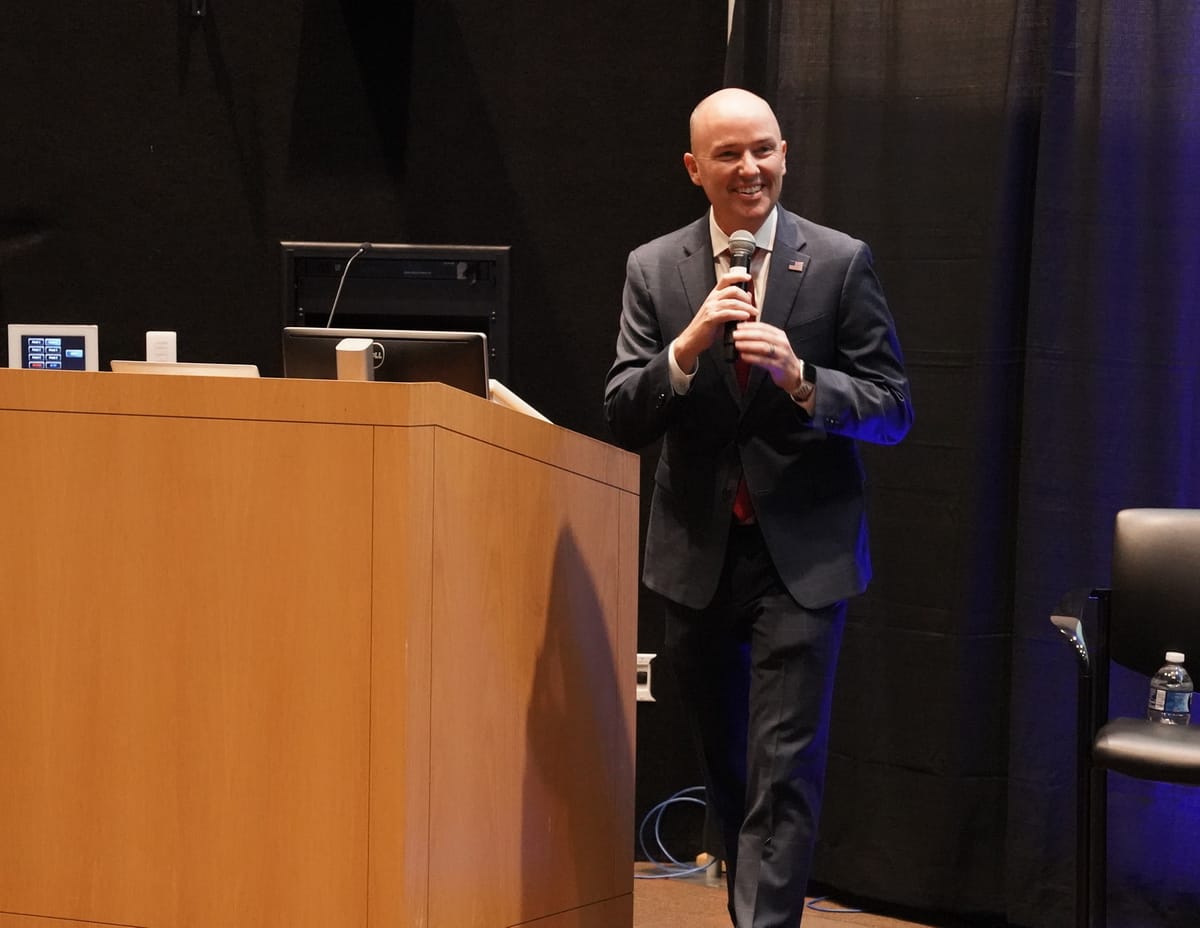

Utah Governor Spencer J. Cox delivered a keynote address at the AI Policy Summit, taking place today at Salt Lake Community College in Sandy, Utah. After an introduction by Rep. Jefferson Moss, House Majority Leader in the state legislature, who himself was introduced by Margaret Busse, Director of Department of Commerce, Governor Cox discussed both the immense potential and inherent risks of artificial intelligence (AI). Governor Cox emphasized Utah's unique position as a leader in AI policy and innovation, advocating for a collaborative approach between government, industry, and academia to ensure responsible development and utilization of this transformative technology.
Having just returned from Money 20/20 in Las Vegas, the world’s largest and most influential gathering of the global money ecosystem, Governor Cox acknowledged Utah's unexpected rise as a fintech hub.
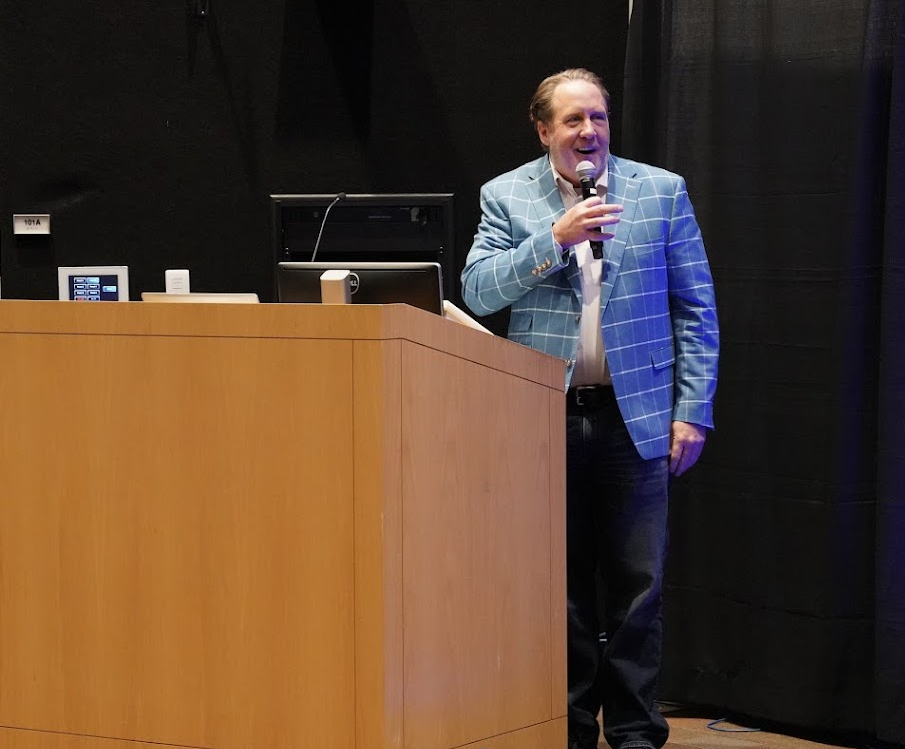
“Utah has become renowned as one of the FinTech centers of the world," stated the Governor. "We're being mentioned in the same breath as places like London, New York and Miami. It’s very unexpected for people. I always get the question, Why? Why is Utah leading in fintech? It doesn't make sense to people, unless you've lived here and understand our history of financial services and technology.”
Governor Cox acknowledged the rapid advancements in AI, particularly large language models, and expressed both excitement and concern about its implications. He drew a comparison between AI's potential to solve global problems and its capacity to pose significant threats, emphasizing the need for careful consideration and proactive measures.
Governor Cox emphasized a "hopeful" approach to AI, advocating for proactive engagement rather than passive optimism. He stressed the role of elected representatives in protecting the public from potential harms while simultaneously fostering innovation.
“As your elected representatives, our job is to make decisions that help protect the public from all the bad things that can happen from AI. At the same time, we don't want to stifle all the amazing things that could happen with AI.”
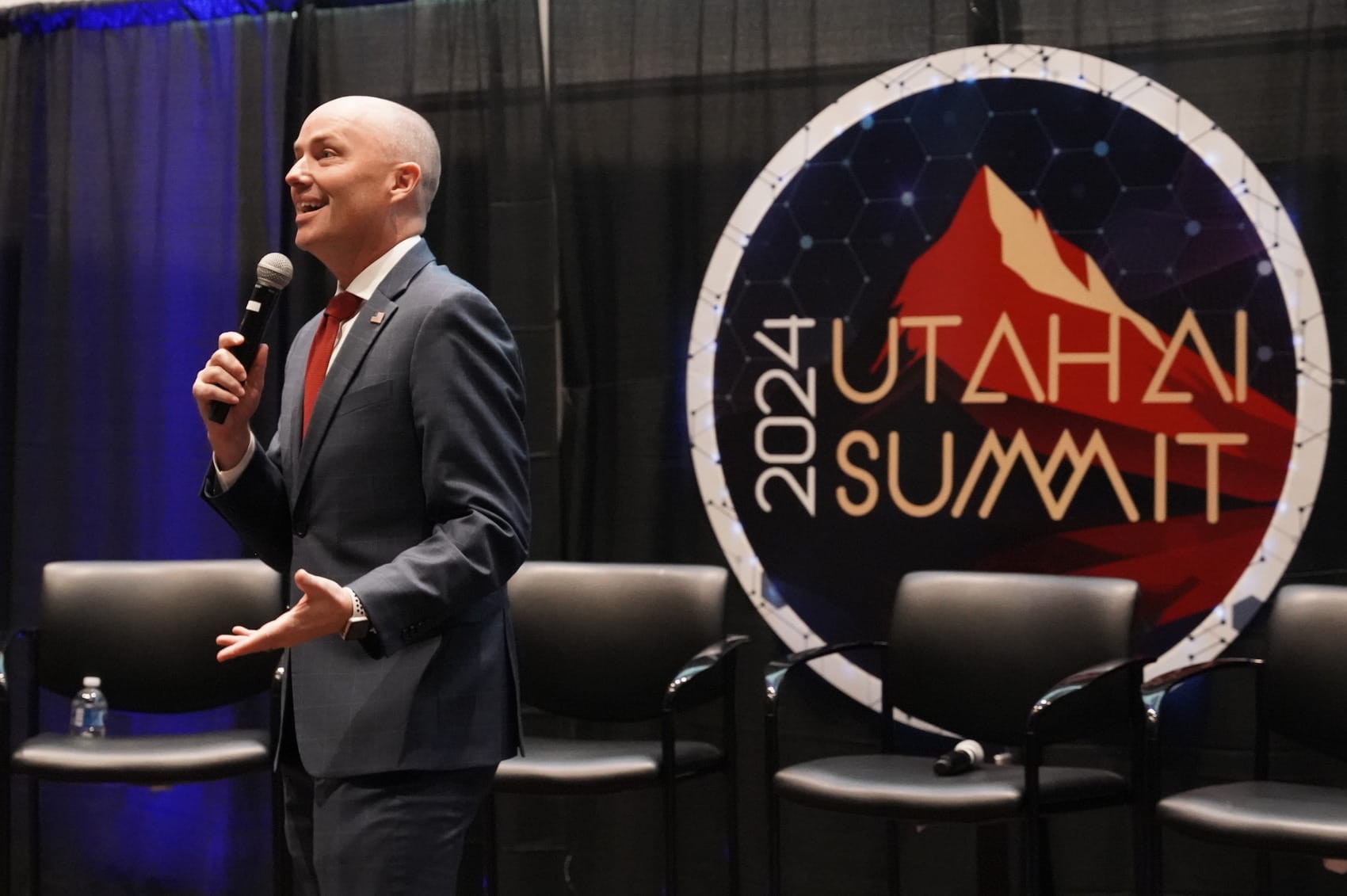
Recognizing the limitations of traditional government regulation in keeping pace with rapid technological advancements, Cox highlighted Utah's innovative "Policy Lab" concept. As previously covered by TechBuzz, the Policy Lab approach that the state is taking with regards to AI embeds private sector experts within government, facilitating close collaboration between regulators and innovators to develop effective and adaptive policies.
In discussing the need for an engaged Policy Lab approach, Governor Cox reminded the audience about the reality of the limited time the state legislature can take up legislation affecting AI. “We have a legislature that meets for 40 or 45 days, and they don't meet again until January of the next year. If you're in an industry, like AI, that is changing day to day, then it is impossible to have the type of government that we need to protect people and encourage innovation."
Cox said the answer is to “innovate in government” by creating structures that can be both nimble and responsive to fast-moving challenges such as AI. He brought up our current system of government, which with its structural checks and balances often results in very slow decision making.
As a private sector entrepreneur running a telecom company, Governor Cox had a board of directors of 11 people. “Now I have a board of directors of 104 people–the state legislature–who all have their own ideas, and are elected by the people to implement their ideas…we have decided that we want a government that is very slow, very deliberate, and one that would not act too quickly. We have decided intentionally that we want a government that is divided, one in which no one would have too much power, one that actually requires you to convince a coalition of people–probably many of whom don't agree with you–to get anything done. It seems like a terrible way to run anything, and yet it's the best way, I promise you, to run a government. I'm so grateful we have it.”
However, in creating a government structure to grapple with a rapidly evolving emerging technology such as AI, Governor Cox explained the state wanted to "innovate in government," and engage the private sector and other stakeholders and structures, in order to move more quickly and get ahead of the AI juggernaut.
“We sat down with people who could see this vision. We sat down with the private sector and asked ‘ Is there a better way to deal with an emerging technology that would allow us to get the best of both worlds–to not have a heavy hand of government stifling innovation and preventing new jobs and new ideas, and yet still be able to not destroy the world?”
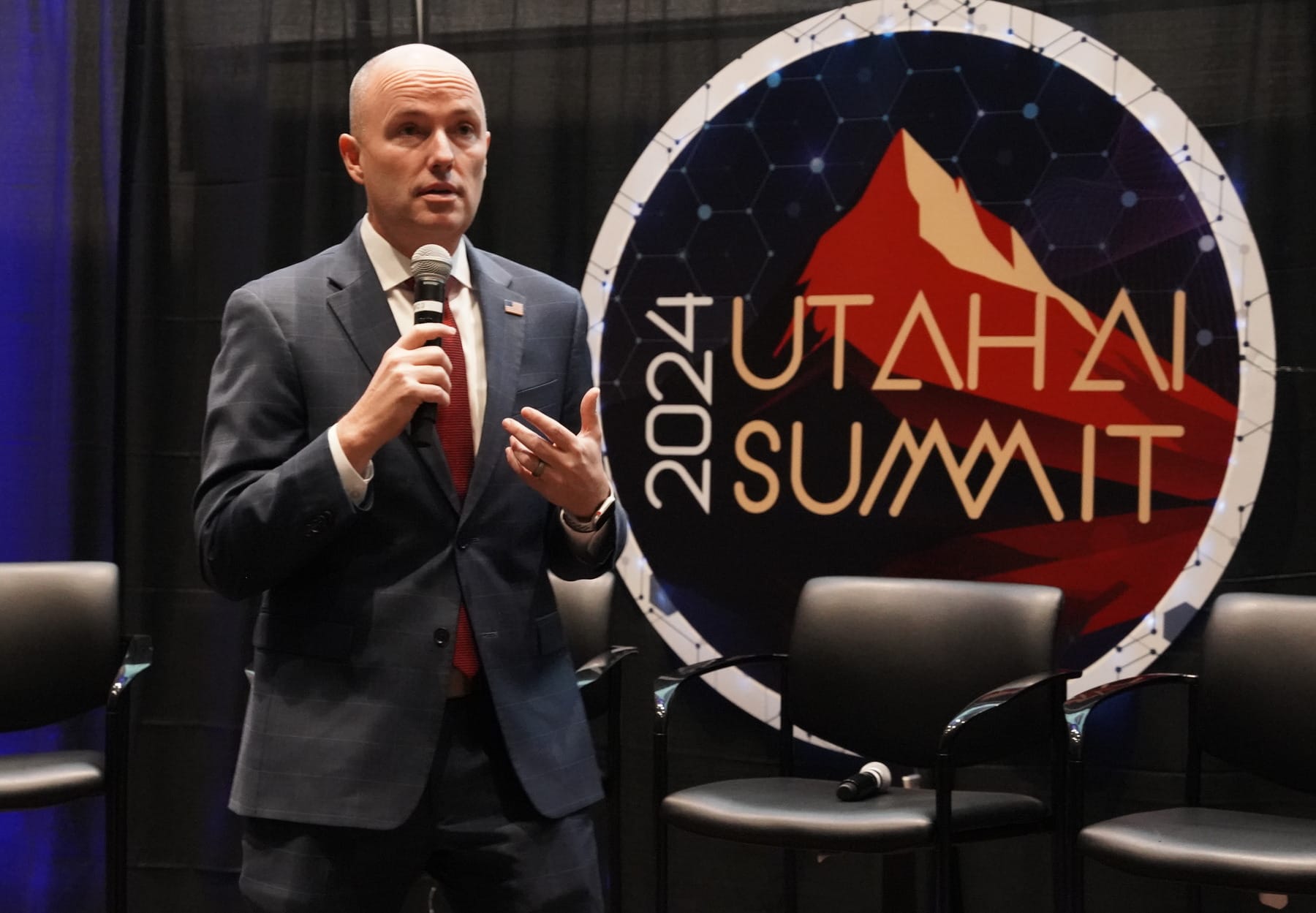
Governor Cox pointed out a traditional approach to regulation, the traditional "catch people doing something wrong" mentality, isn’t the approach they wanted for the AI Policy Lab approach, which instead shifts towards helping businesses "do things right." He believes this collaborative approach provides certainty for businesses, encouraging investment and innovation while ensuring responsible practices.
Governor Cox touched on the issue of energy consumption in AI, noting the immense power requirements of AI data centers. He highlighted one of the factors that a lot of people ignore about the rapid rise of AI–energy costs and sources that will need to be put in place in order to power AI data centers, and if not, the impact it will have on ratepayers in Utah and in other states.
As an example, he cited a proposed data center in Utah that would consume more power than the entire state of Wyoming. “One data center project proposed here in Utah would use 1.4 gigawatts of power. To put that into perspective, the entire state of Wyoming currently uses 900 megawatts of power. One data center campus would use 1.5 times more power than the entire state of Wyoming. Actually Utah runs on about four gigawatts of power. So, again, that one data center would use more than 25% of our energy. The math does not work here in Utah. And by the way, it doesn't work in most states.”

Cox stressed the need for increased energy production to meet this growing demand, advocating for an "abundance mentality" rather than a scarcity mindset.
“We have an abundance of energy here in this state and in this nation. We shouldn't have to choose between having enough power to do the things that we want and still having the type of environment that we care about.”
Governor Cox called for a national "abundance agenda" to unleash opportunities in AI and energy production, rejecting the divisive rhetoric of zero-sum thinking.
He urged the technologists in the audience to be mindful of the potential negative impacts of AI, particularly in the realm of social media, a topic Utah has led on, especially with regards to teen mental health. “Please be careful with your innovations. Please try to understand human nature and how devastating these things can be."
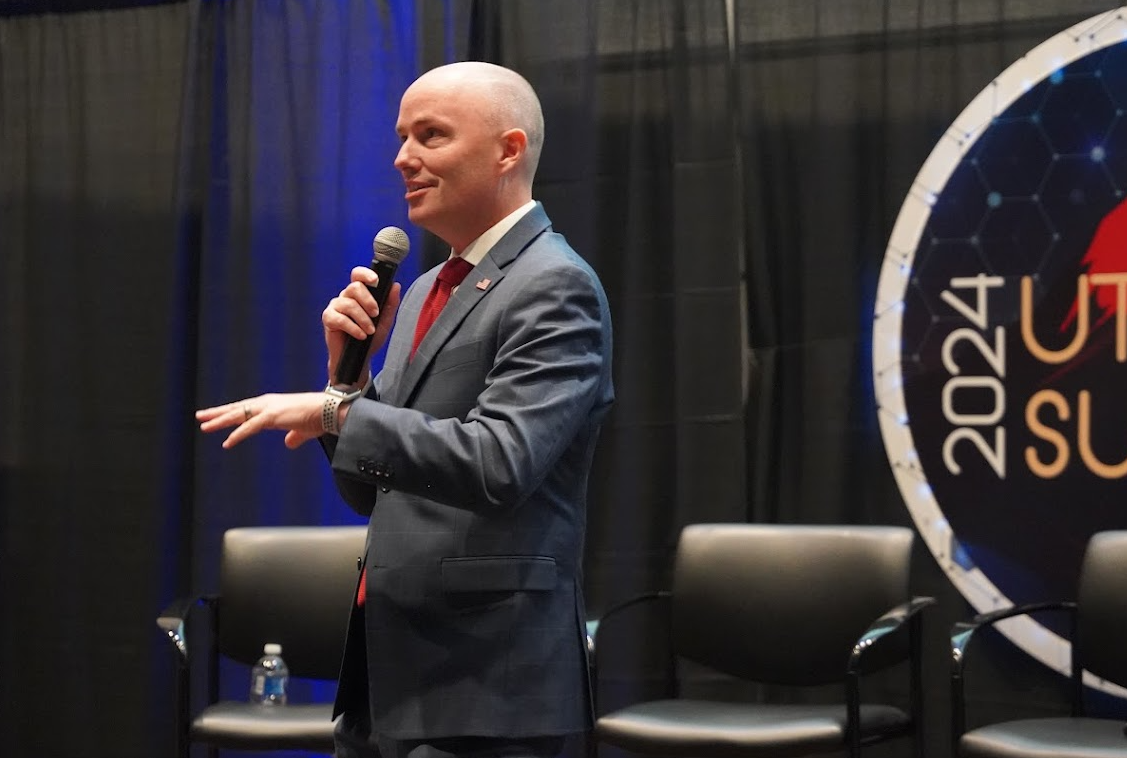
In closing, Governor Cox reiterated his belief in the people of Utah and their ability to navigate the challenges and opportunities presented by AI. He expressed confidence in the state's collaborative spirit and its potential to serve as a model for responsible AI development and deployment.
Cox attributed Utah's entrepreneurial spirit to a combination of "rugged individualism" and a deep sense of community.
“This idea of solving problems? I think it's in our DNA." said Governor Cox. "As someone who lives on the same farm that my great, great, great grandfather settled 107 years ago—a place that should not have even been a farm—you have to learn how to solve problems. When you come to a place where not a lot of people want to be because it's fairly inhospitable, you have to figure it out. You become very entrepreneurial in order to fix things and solve problems, and you need to do it quickly.”
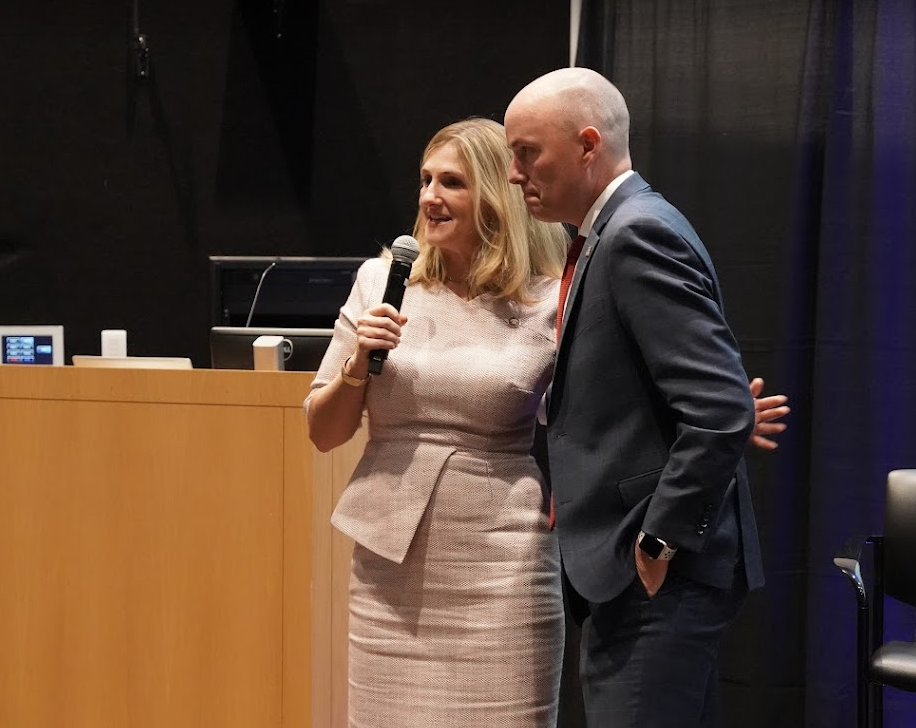
View videos of the event here.

